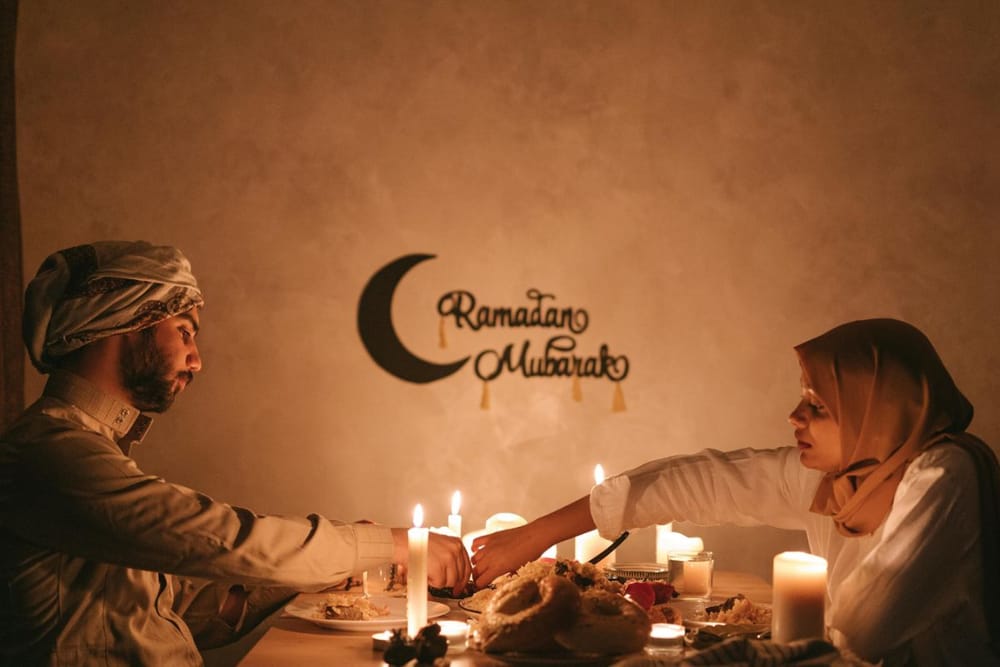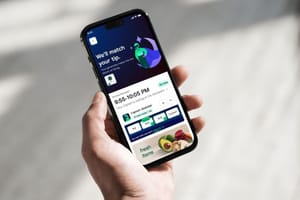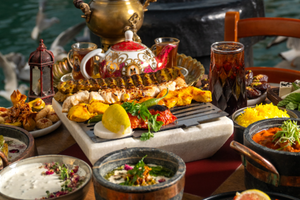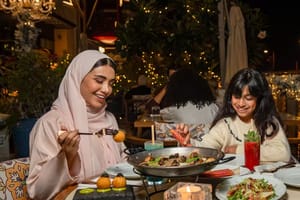If someone told you that retail spending during the holy month of Ramadan across the Middle East and North Africa region was 1.5x greater than the entire GDP of Bahrain, would you believe them?
Well, retail sales across the region last year reached USD 66 billion during the holy month, which almost matched Black Friday, the most significant shopping event in the Middle East, for total sales.
As we welcome Ramadan this year, what are the latest trends captivating GCC shoppers, and how are they impacting businesses in the region? We're here to guide you through these insights with clarity.
Digital Shifts and Savvy Spending
During Ramadan, shopping habits in GCC shift markedly. Last year, 53% of GCC consumers increased their spending during Ramadan, and nearly 75% postponed their purchases to wait for one of the special retail promotions or discounts, which are widely available throughout Ramadan. Take, for example, SHEIN’s move to set up their first-ever Ramadan-themed pop-up store in Abu Dhabi and slash all prices by 25%. Strategies like this are hitting the right note, with a whopping 95% of UAE shoppers prioritizing affordability and getting the best bang for their buck this month.
There’s also a noticeable shift towards online platforms and digital tools for Ramadan shopping sprees. 77% of people in the UAE now prefer using their smartphones for Ramadan shopping, with a majority of them choosing to explore and purchase directly through apps. This move towards digital shopping doesn't seem to be slowing down anytime soon. E-commerce sales jumped by 61% last year across the region during Ramadan, showing just how much this trend is taking hold. With Ramadan online spending hitting a record USD 6.2 billion in 2022 and rising by another 9% in 2023, it's clear that digital platforms are playing an increasingly pivotal role in meeting the needs of GCC shoppers.
Feasting and Festivities
Ramadan is also a time of significant lifestyle adjustments, and food plays a central role in how people experience the holy month. The season is well known for family togetherness and the communal joy of iftar meals: in the UAE, the preference leans heavily towards home cooking, with over two-thirds of residents choosing to prepare their meals at home during the holy month, compared to a smaller segment (19%) who prefer takeout food for convenience and variety.
The quest for culinary inspiration sees a spike during Ramadan, with Google searches for “best iftar” and “best recipe” hitting their peak. This surge is accompanied by an increased reliance on grocery delivery apps – which saw a 58% uptick in usage last Ramadan – making it easier for families to procure the necessary ingredients without leaving the comfort of their homes. This digital shift in food consumption patterns highlights the blend of tradition and modernity that characterizes the observance of Ramadan today.
After Ramadan, the cultural and social activities enjoy a lively boost during the festivities of Eid Al-Fitr. This year, a significant number of UAE residents are planning to engage in a variety of activities: visiting family (84%), dining out (76%), attending cultural events (64%), shopping at malls for the retail experience (81%), and even travelling abroad (57%) during Eid.
The excitement for a Spring Ramadan is palpable, with 52% of GCC residents looking forward to the numerous outdoor options that the cooler season offers. This extends to the food traditionally associated with Ramadan, as nearly half of the residents anticipate indulging more in hot beverages in addition to dates and other sweets, enriching the already diverse array of Ramadan traditions and experiences.
Embracing Ramadan's Values for Deeper Impact
Ramadan is a period filled with a deep sense of community and heritage. Nearly 60% of consumers feel a stronger connection to brands that share compelling stories, especially those that resonate with the themes of Ramadan and Eid; and 82% believe brands must acknowledge the religious importance of the occasion. There's also a growing expectation for businesses to do more than just sell, with 74% of consumers saying companies should actively contribute to local communities during the holy month.
So, for brands looking to make a mark during this season, adopting a tailored approach is essential. By aligning with these deeply held values, brands can forge stronger, more impactful connections with their audience and stand out in an increasingly competitive market.
Values and Virtues: How Faith Shapes Brand Engagement in the UAE
Our findings shine a spotlight on how deeply faith influences consumer habits. A significant percentage of UAE residents – more than half, in fact – consider themselves as deeply rooted in their religious beliefs. They are 20% more likely to engage with friends and family on social media, 12% more receptive to discovering brands through personal recommendations, and 15% more likely to share their product discoveries with their circle.
Loyalty to brands is a big deal for this group. Almost half of them stick with their favorite brands and are regular users of rewards programs, showcasing a loyalty level that is 18% higher than the average shopper. However, their loyalty comes with expectations. Nearly half of them expect their preferred brands to be eco-friendly and socially responsible, and over a third expect transparency in how their data is used.
These consumers set the bar high for how they want brands to interact with them: compared to the average shopper, they're 20% more interested in brands that customize products and listen to their feedback. Feeling valued is a big deal for them too, as they are 16% more likely to want their brands to acknowledge their loyalty.
As we embrace the spirit and values that Ramadan instills in our lives, it becomes evident that this holy month transcends mere religious observance. It offers a unique opportunity for deeper spiritual reflection and communal bonding. During Ramadan, brands have the chance to truly connect with their audience by resonating with the values of generosity, empathy, and community that are central to this sacred time. By thoughtfully aligning their messages and actions with the ethos of Ramadan, companies can build meaningful connections with their customers, demonstrating respect and understanding. This approach not only nurtures loyalty and trust but also celebrates the essence of the season.
News Source: Communicate Online









